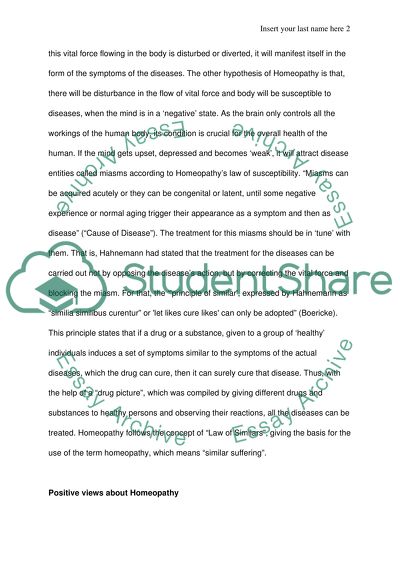Cite this document
(“Homeopathic Medicine - Alternative Medicine Essay”, n.d.)
Retrieved from https://studentshare.org/health-sciences-medicine/1435589-alternative-medicine
Retrieved from https://studentshare.org/health-sciences-medicine/1435589-alternative-medicine
(Homeopathic Medicine - Alternative Medicine Essay)
https://studentshare.org/health-sciences-medicine/1435589-alternative-medicine.
https://studentshare.org/health-sciences-medicine/1435589-alternative-medicine.
“Homeopathic Medicine - Alternative Medicine Essay”, n.d. https://studentshare.org/health-sciences-medicine/1435589-alternative-medicine.


